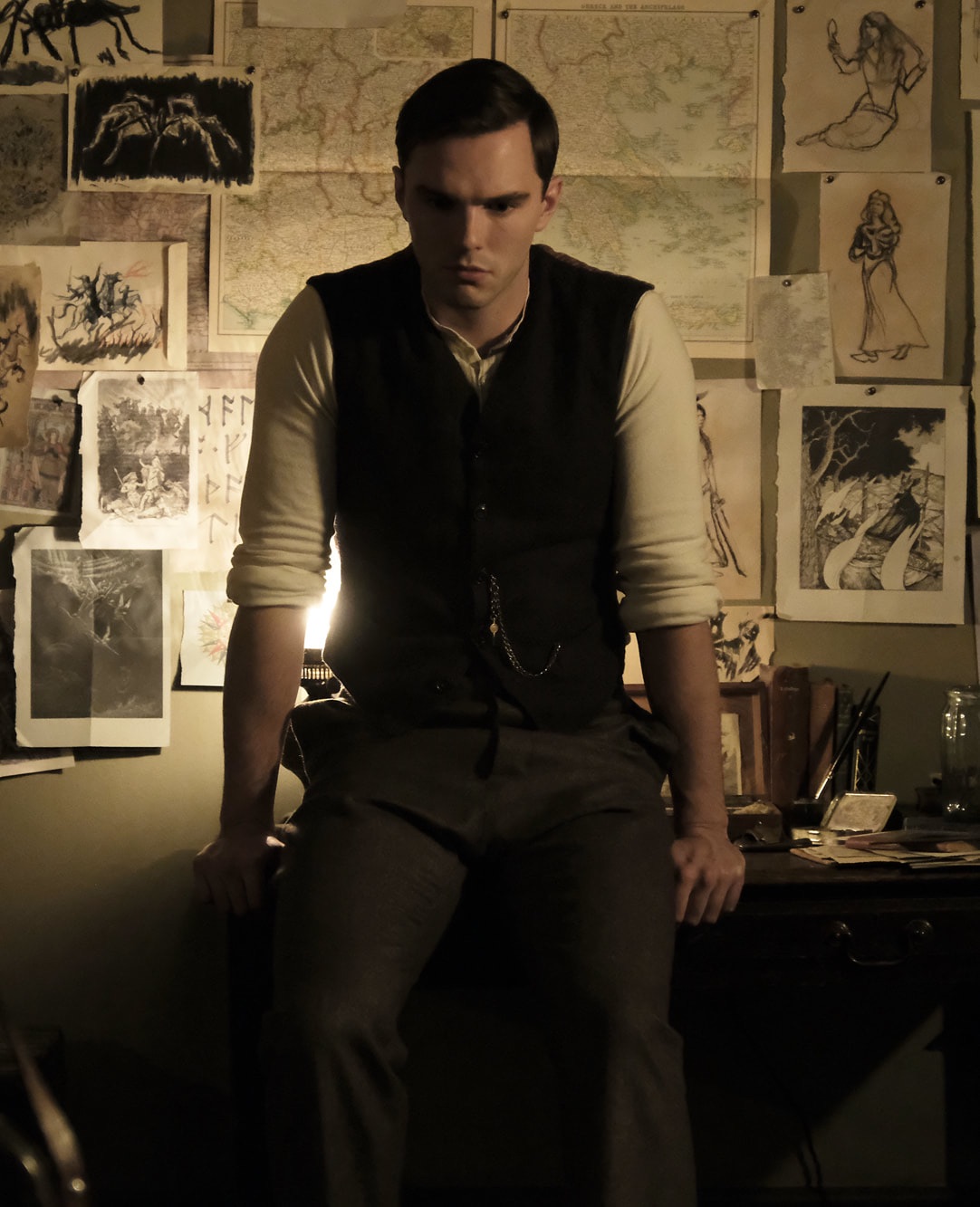Review:
"Tolkien"

Release Date: May 10, 2019
Rating: PG-13 Running Time: 112 minutes The inherent problem with a biography such as Tolkien is that it relies either on its subject having led an intriguing life—or at the very least enjoyed an intriguing period of their life to concern ourselves with—or its driving creative forces making a life less ordinary seem extraordinary. Yes, this “Hobbit” and “The Lord of the Rings” origin tale of sorts makes a strong case that author J. R. R. Tolkien’s private school days and University of Oxford years were challenging for a penniless orphan with an early passion for words and language. This in of itself does not make for a particularly engaging story no matter your interest in the fantasy worlds Tolkien created. So it is down to director Dome Karukoski and credited screenwriters David Gleeson and Stephen Beresford to find magic in the mundane. Unfortunately, they do not as they examine in stuffy and obvious fashion the defining events and friendships that would go on to inform Tolkien’s literary masterpieces. Instead, Karukoski, Gleason and Beresford offer almost two hours of a young Tolkien (Nicholas Hoult) trying to prove his worth to snooty rich classmates and educators, engaging in florid conversations about the necessity of art with his close pals, and exchanging longing glances with his soulmate and future wife Edith Bratt (Lily Collins). Tolkien plods along to the inevitable moment when the author sits down to begin work on “The Hobbit.” What Tolkiendoes with assurance is to demonstrate the importance of fellowship to the author and how it led to his best writing. The film initially presents Tolkien as an outsider the moment he and his orphaned brother are taken in by a wealthy foster parent and are enrolled at a haughty private school in Birmingham, England. Tolkien only achieves a sense of belonging when he develops a friendship with three fellow students and, together, they found a secret society that continues to meet even when the close pals graduate and head to university. At the same time, Tolkien falls for housemate and fellow orphan Edith, an aspiring pianist with a passion for the music of Richard Wagner. Yes, Wagner’s Ring Cycle plays a pivotal role in Tolkienin terms of advancing the film’s romance and its subject’s writing. Tolkien learns the value of fellowship through the good times and the bad times, the latter represented by personal failures, a regrettable decision forced upon him by his benefactors, and the advent of World War I. Tolkien frames the author’s academic pursuits against his struggle to survive in the trenches in Frances. With the launch of the Battle of the Somme mere days away, a physically weak and seemingly psychologically frial Tolkien abandons his post to search for one of his missing friends. Director Dome Karukoski cuts back and forth between Tolkien’s studies and Great War experiences to explore how the author came to write fantasy stories that were driven by love, friendship, and quests both personal and commercial in nature. The sequences set during World War I allows Karukoski a precious opportunity to indulge in arresting fever-dream imagery taken directly from Tolkien’s stories. Still, Karukoski makes clear that Tolkien’s school years were more formative for him as an author than the impact World War I had upon him personally and professionally. As Tolkien, Nicholas Hoult finds his way into the author’s head by drawing upon his dedication to the spoken and written word as well as the ability to construct his own languages with relative ease. Hoult projects an intelligence that makes Tolkien the smartest person in the room, even when he happens to be surrounded by his University of Oxford academics, including Derek Jacobi’s influential philologist professor Joseph Wright. Not that Hoult imbues Tolkien with a sense of arrogance that makes him an intolerable chap. Instead, this is a Tolkien who projects an insecurity that comes with dealing with loss and hardship at such an early age. This feeling is only offset by the friendships Tolkien forms at school and his courtship of Edith Bratt. Tolkien wants to depict Bratt as more than just a muse. After being shot down by Tolkien during her first meeting with his friends, Bratt puts her suitor rightfully in his place by demanding he not only respects her opinions but allows her to voice them in public. As Bratt, Collins brings such authority to the confrontation with Tolkien that it appears to signal that the film will no longer treat Bratt as one of Tolkien’s support systems. But Tolkien cannot figure out how to portray Bratt outside of her relationship with Tolkien, and she quickly reverts back to being nothing more than an influential figure in his life and work. While Tolkien’s relationship with Bratt provides much insight into his future writing, it is still not enough to make Tolkienan essential dissection of the creative mind. Robert Sims Aired: May 9, 2019 Web site: http://www.foxsearchlight.com/tolkien/ |
|
